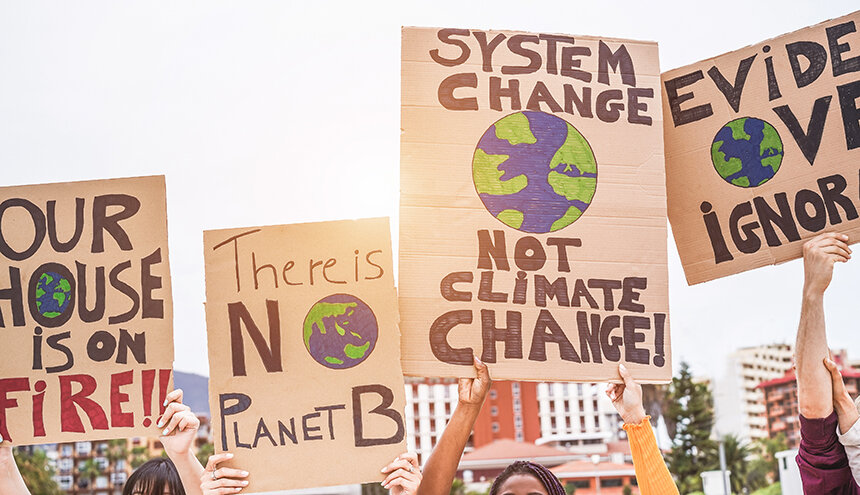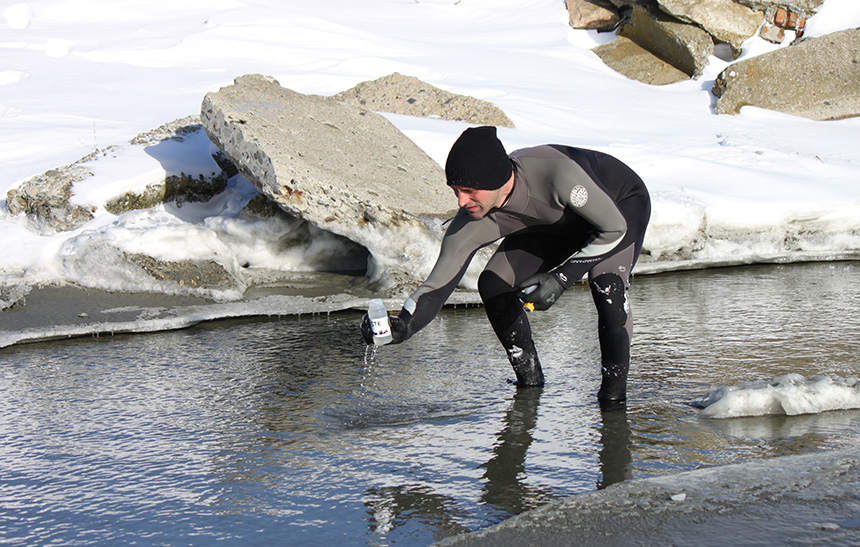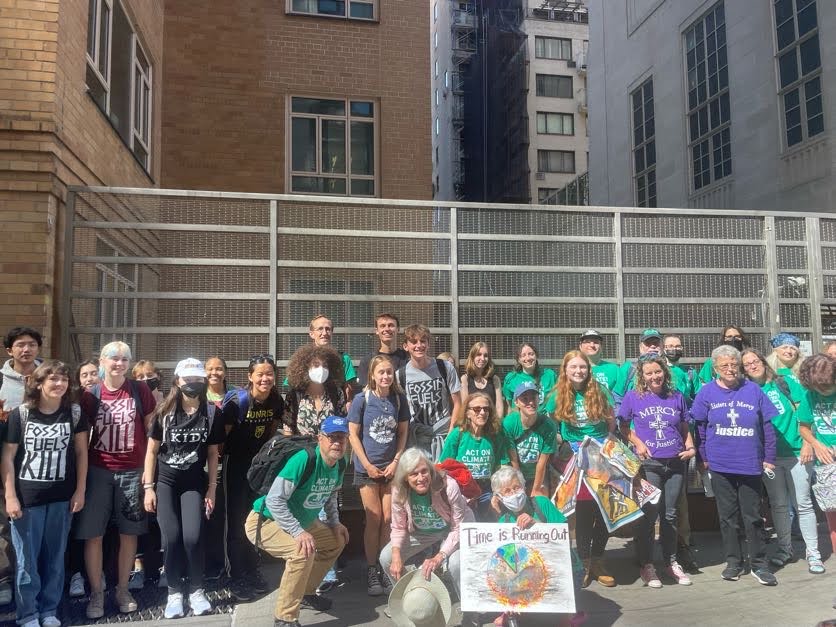Enough is Enough: Polluted Providence Neighborhoods Sick of Fossil Fuels
June 16, 2021
PROVIDENCE — The crowd gathered in golden light. Nearly 100 people, a few with signs waving in an evening breeze. Just a mile away, on the East Side of the Providence River, the same light, the same breeze might be picturesque.
But on the corner of Allens Avenue and Terminal Road, the light is filtered through pollution, the breeze noxious. Silence is split by passing tractor trailers, and nearly 50 white tanks, filled with fossil fuels, protrude into the horizon.
The crowd, rallied by the People’s Port Authority and the Rhode Island Interfaith Coalition to Reduce Poverty, is here to oppose the addition of six more of these tanks to the Port of Providence — 90,000 gallons each and all to hold liquefied petroleum gas (LPG). The tanks would link up propane-distribution company Sea 3 Providence LLC to an existing rail line for train delivery and allow the subsidiary of New England propane provider Blackline Midstream LLC to expand LPG storage on its Fields Point site, which currently hosts a 19-million-gallon cold-storage tank.
“We’re saying enough is enough, and we certainly can’t add six more tanks,” Monica Huertas, director of the People’s Port Authority, said at the June 10 protest.
Convenient access to rail, highway and sea is part of what gives the Port of Providence license to advertise as “one of America’s most strategically located port facilities.”
But the industrial area is also perfectly placed to pollute the surrounding South Providence and Washington Park neighborhoods, according to Sarah Hsu, a Brown University medical student who serves as vice chair of Medical Students for a Sustainable Future, a group of more than 400 medical students nationwide invested in patient and environmental health.
“It is unfair right now that across the street at the Providence Community Health Center, nearby at the Chapman Primary Care Clinic we are seeing patients who are breathing this toxic air,” Hsu said, “and that is not all right.”
Air pollution can raise the risk of stroke, cardiovascular disease, lung cancer and chronic respiratory disease, according to the World Health Organization, and causes about 4.2 million deaths annually worldwide.
Data released in 2019 revealed Rhode Island held the ninth-highest asthma rates in the country, with respiratory issues focused in neighborhoods closest to highways and industrial areas, including in the communities surrounding Providence’s industrial waterfront.
“At best we should start tearing down everything in this port, at minimum we should be doing nothing,” Hsu said. “But at no point should we be expanding.”
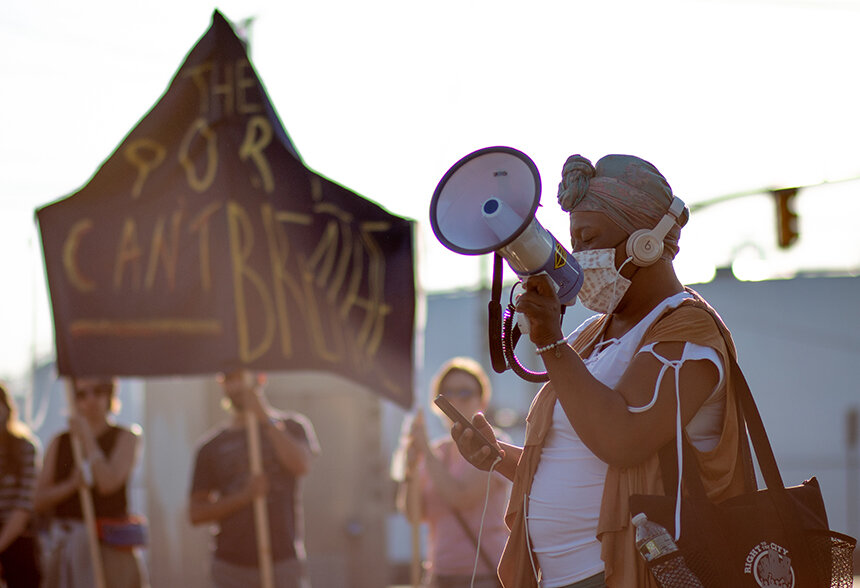
Terri Wright, a resident of the area and an organizer with Providence-based Direct Action for Rights and Equality (DARE), said neighborhood pollution is multi-leveled, affecting noise, litter, light, water and air. With each breath, she said, residents are forced to “pick your poison.”
“What community can reach its full potential under these conditions?” she asked.
Sen. Tiara Mack, D-Providence, said companies in the port have long believed they could “pick on” the surrounding communities, which are predominantly Black, Brown and low income. The city, she said, has done little to listen to the neighborhoods’ concerns.
“The same port that has toxic air over here has beachfront properties less than a mile away from here, and across the river there are pools that look onto the port,” Mack said. “That is inherently racist.”
For David Veliz, director of the Rhode Island Interfaith Coalition to Reduce Poverty, the pollution in the port area is a clear example of environmental racism that has gone unchecked by people in power.
“You can’t get more inequality than the environmental racism we’re seeing in this community,” he said.
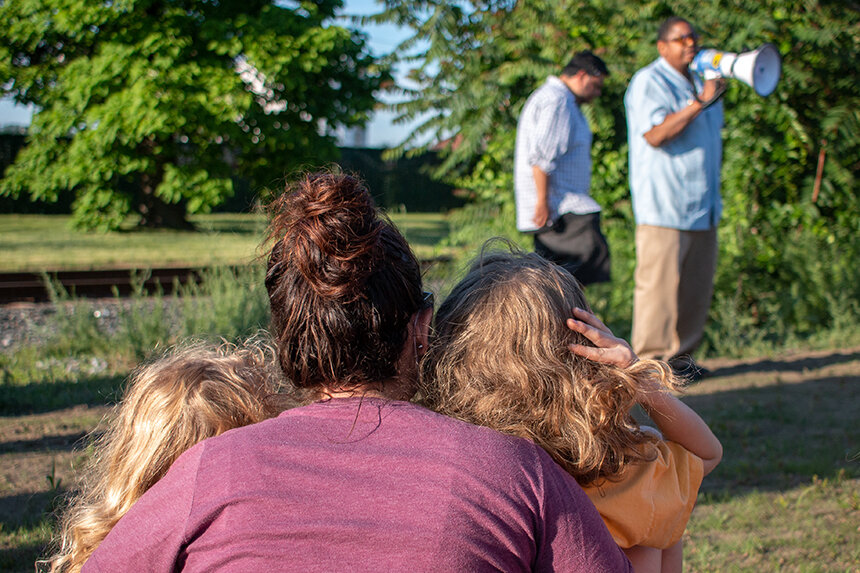
A few days earlier, Veliz joined the Rhode Island contingent of the national Poor People’s Campaign to support the proposed “Third Reconstruction” resolution. The resolution, sponsored by Rep. Barbara Lee, D-Calif., has the support of Rep. David Cicilline, D-R.I., and is gaining traction in the U.S. House of Representatives.
The resolution, a continuation of the reconstruction movements of the post-Civil War period and civil rights era, calls for comprehensive action against poverty, which affects 140 million people nationwide. Poverty, the resolution says, is “deeply entwined” with issues ranging from systemic racism and distorted religious nationalism to the denial of health care and ecological devastation.
By redirecting military funding, raising taxes on corporations and departing from trickle-down economic policies, the resolution suggests the nation could tackle widespread “interlocking injustices” — like those playing out Providence’s port area.
“I do believe that we have a moral imperative to address poverty, to address inequality, to come together in all beliefs,” Veliz said, “and say we can no longer stand around while kids in Rhode Island are poisoned.”

